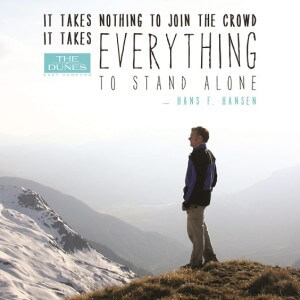
What many recovering addicts don’t realize is that the real work starts when they walk out the door. While you acknowledged that you had a problem and committed to addiction treatment programs, you must now face the world without falling back on your familiar comfort source.
In treatment, there’s no temptation from drugs or alcohol. But now that you are out in the real world, you will face temptation every day. Unhealthy temptation to use as a coping mechanism to deal with stress. Or you may drive past an old hangout or revisit people you used to drink or use with. Also, your coworkers may invite you out for a drink.
These are all potential triggers that you will want to avoid in early recovery.
Here are four tips to help you do exactly that, while preventing relapse.
4 Tips To Avoid Exposure To Triggers
1. Get Rid Of All Reminders Of Your Past Drug/Alcohol Use
Some paraphernalia is obvious. If you were addicted to heroin for example, you will want to toss anything related to heroin paraphernalia. But others aren’t so obvious. If you have a drinking problem, your wife may not realize that the stylish wine rack can be a trigger. Toss everything that reminds you of your addiction: paraphernalia, posters, incense, movies, CDs, a favorite couch, etc. Start clean.
2. Distance Yourself From Old Friends
Right now you need to be around friends and loved ones who are supportive of your recovery. Distance yourself from those who are going to bring you down. This means deleting their phone numbers and defriending them on social media. You don’t want to experience any temptation to contact them. Also avoid going to places where you know they will be.
If your loved ones are struggling to support you, there are family resources that can help them get on the same page for your recovery.
3. Avoid Driving Past Or Visiting Old Hangouts
You probably had common places that you would use to get drunk or high. Steer clear of them. You may have to take a different route to work or the grocery store. In the meantime, find new places to hang out so that you aren’t stuck in the past. You’re likely to find bookstores, restaurants, coffee shops, and more that will complement your new sober life.
4. Replace The Addiction With Something New, Healthy And Interesting
Now that you are clean and sober, you have more time on your hands. It’s important to find something constructive to do with this time, otherwise you may feel bored, which is a trigger in itself. Fill your time with a new passion such as meditation, photography, going to the dog park, joining a sober local sport’s team, or volunteer work. These activities will keep you busy and help you discover meaning in life.
The Dunes East Hampton is here to help you on the path to recovery. We offer individualized treatment that helps our clients get the one-on-one attention they deserve. We also offer extended care for our clients who have completed one of our drug addiction treatment programs. Call us today to learn more about overcoming addiction.





